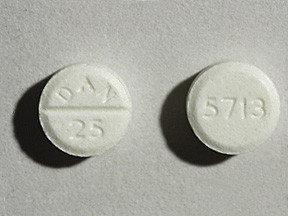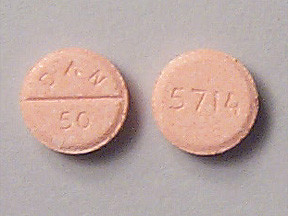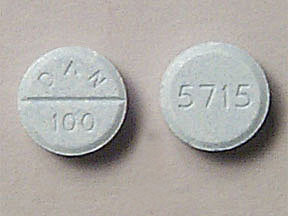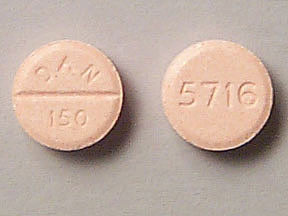AMOXAPINE - ORAL
PHONETIC PRONUNCIATION: (a-MOX-a-peen)
COMMON BRAND NAME(S): Asendin
GENERIC NAME(S): amoxapine
Uses
USES: This medication is used to treat depression. Treating depression can improve your mood and sense of well-being and allow you to enjoy everyday life more. Amoxapine is a tricyclic antidepressant. It works by restoring the balance of natural chemicals (neurotransmitters) in the brain. Because amoxapine has some effects that are similar to those of major tranquilizers, it may work better in patients who have agitation or anxiety along with depression.
How to use AMOXAPINE - ORAL
HOW TO USE: Read the Medication Guide if one is available from your pharmacist. Consult your doctor or pharmacist if you have any questions. Take this medication by mouth with or without food, one or more time(s) daily. To lessen side effects, amoxapine may be started at a low dose and slowly increased as your body gets used to it. Follow your doctor's instructions carefully. After you have reached the best dose for you, the total dose (when the daily dose is 300 milligrams or less) can be taken once daily, usually at bedtime to prevent daytime drowsiness, or as directed by your doctor. Your dosage is based on your medical condition, age, and your response to therapy. Use this medication regularly in order to get the most benefit from it. To help you remember, use it at the same time(s) each day. This medication does not work right away. It may take up to two weeks before you experience the full benefits. It is important to continue taking this medication even if you feel well. Do not suddenly stop taking this medication without consulting your doctor. Some conditions may become worse when the drug is abruptly stopped. Your dose may need to be gradually decreased. Inform your doctor if your condition does not improve or if it worsens.
Side Effects
Precautions
Interactions
Overdose
Images
Reviews
Faq for AMOXAPINE - ORAL
Amoxapine is an oral medication belonging to the class of drugs known as tricyclic antidepressants. It is primarily used to treat depression by restoring the balance of certain chemicals in the brain.
Common side effects of Amoxapine may include drowsiness, dizziness, dry mouth, blurred vision, constipation, weight gain, and sexual problems. It is important to report any severe or persistent side effects to your healthcare provider.
It may take several weeks before you start experiencing the full benefits of Amoxapine. It is crucial to continue taking the medication as prescribed, even if you do not immediately notice improvements in your symptoms.
Amoxapine is generally not recommended for children, as its safety and effectiveness in pediatric patients have not been well-established. It should only be used in children under the close supervision of a healthcare professional.
Certain medications and substances, such as MAO inhibitors, alcohol, sedatives, and antihistamines, may interact with Amoxapine and lead to potentially dangerous effects. It is important to inform your doctor about any other medications or substances you are taking before starting Amoxapine.
No, you should never abruptly stop taking Amoxapine without consulting your healthcare provider. Gradual dose reduction is usually recommended to avoid withdrawal symptoms. It is essential to follow your doctor's instructions when discontinuing the medication.
Amoxapine is not considered addictive in the traditional sense, as it does not produce a euphoric or "high" effect. However, suddenly halting the medication or misuse can lead to withdrawal symptoms or other adverse effects.
The use of Amoxapine during pregnancy or breastfeeding should be discussed with your doctor. It is generally recommended to weigh the potential benefits against the potential risks before using this medication in these situations.
If you miss a dose of Amoxapine, take it as soon as you remember. However, if it is close to the time for your next dose, skip the missed dose and resume your regular dosing schedule. Do not double the dose to make up for a missed dose.
Warning
WARNING: Antidepressant medications are used to treat a variety of conditions, including depression and other mental/mood disorders. These medications can help prevent suicidal thoughts/attempts and provide other important benefits. However, studies have shown that a small number of people (especially people younger than 25) who take antidepressants for any condition may experience worsening depression, other mental/mood symptoms, or suicidal thoughts/attempts. Therefore, it is very important to talk with the doctor about the risks and benefits of antidepressant medication (especially for people younger than 25), even if treatment is not for a mental/mood condition. Tell the doctor right away if you notice worsening depression/other psychiatric conditions, unusual behavior changes (including possible suicidal thoughts/attempts), or other mental/mood changes (including new/worsening anxiety, panic attacks, trouble sleeping, irritability, hostile/angry feelings, impulsive actions, severe restlessness, very rapid speech). Be especially watchful for these symptoms when a new antidepressant is started or when the dose is changed.
Disclaimer
IMPORTANT: HOW TO USE THIS INFORMATION: This is a summary and does NOT have all possible information about this product. This information does not assure that this product is safe, effective, or appropriate for you. This information is not individual medical advice and does not substitute for the advice of your health care professional. Always ask your health care professional for complete information about this product and your specific health needs.




No Reviews Yet